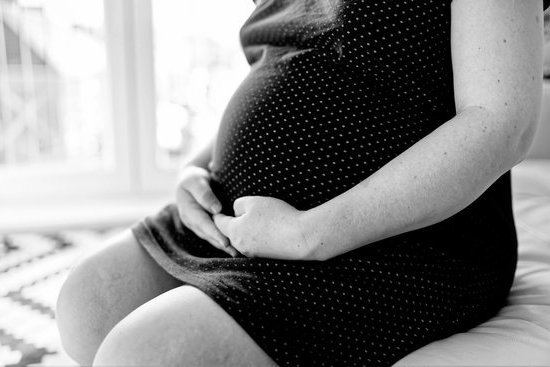Pregnancy is a special time in a woman’s life where self-care and wellness take on heightened importance. One common concern expectant mothers may have is whether certain skincare ingredients are safe to use during pregnancy. An important query that often arises is, “Is retinol safe during pregnancy?” This question has sparked discussions among health professionals and skincare enthusiasts alike, leading to a deeper exploration of the topic.
Skincare during pregnancy is not just about maintaining beauty but also about ensuring the health and safety of both mother and baby. Among the plethora of skincare ingredients, retinol has gained significant attention due to its potential effects on fetal development. Retinol, a form of vitamin A, is commonly found in various skincare products known for its anti-aging properties. However, its safety during pregnancy remains up for debate.
As we delve into exploring the safety of retinol during pregnancy, it is crucial to understand what retinol actually is and how it functions in skincare products. Additionally, we must consider the potential risks associated with using retinol while pregnant, as well as alternative options available for expectant mothers looking to maintain healthy skin without compromising their well-being or that of their unborn child.
Through informed decision-making and consultation with healthcare providers, pregnant women can navigate the world of skincare with confidence and peace of mind.
What Is Retinol?
During pregnancy, many women may be more conscious about the products they use on their skin due to concerns about potential harm to the developing fetus. One common skincare ingredient that often raises questions is retinol. So, what exactly is retinol?
Retinol is a form of vitamin A that is commonly used in skincare products for its anti-aging and skin-renewing properties. It is known for its ability to improve the appearance of fine lines, wrinkles, and overall skin texture.
Common Uses of Retinol in Skincare Products
Retinol is a popular ingredient in many skincare products such as serums, creams, and oils. Its ability to stimulate collagen production and increase cell turnover makes it a key player in improving the skin’s appearance and texture. Many people rely on retinol to target issues like acne, hyperpigmentation, and signs of aging. However, when it comes to using retinol during pregnancy, there are some potential risks that expectant mothers should consider.
Potential Risks of Using Retinol During Pregnancy
While retinol is praised for its effectiveness in skincare products, there
As a precautionary measure, many healthcare providers recommend avoiding products containing retinol while pregnant or trying to conceive. It’s crucial for pregnant women to understand the possible risks associated with using this ingredient before incorporating it into their skincare routine throughout pregnancy.
The Potential Risks
Increased Risk of Birth Defects
One of the potential risks associated with using retinol during pregnancy is an increased risk of birth defects. While retinol is known for its anti-aging and skincare benefits, it is also a form of vitamin A that can be harmful when taken in high doses, especially during the early stages of pregnancy.
Studies have shown that excessive intake of vitamin A, including retinol, can lead to congenital disabilities such as malformations of the central nervous system, heart, and facial features in developing fetuses.
Skin Sensitivity and Irritation
Pregnancy already comes with its own set of skin challenges such as hormonal changes leading to acne flare-ups or hyperpigmentation. Adding retinol into the mix can further exacerbate these issues due to its exfoliating properties which can increase skin sensitivity and irritation. Pregnant women may experience redness, peeling, dryness, and even burning sensations when using skincare products containing retinol. It is essential to prioritize gentle and non-irritating ingredients during pregnancy to avoid worsening any existing skin concerns.
Potential Risk of Miscarriage
Another significant concern regarding the use of retinol during pregnancy is the potential risk of miscarriage. High levels of vitamin A consumption from sources like supplements or topical treatments like retinol have been linked to an increased risk of miscarriage in pregnant women.
It is crucial for expectant mothers to be cautious about the skincare products they use during this sensitive time to ensure the health and safety of both themselves and their developing baby. Consulting with a healthcare provider before incorporating any new skincare ingredients like retinol is highly recommended to minimize these risks.
Studies and Research
One significant risk of using retinol during pregnancy is the possibility of birth defects if high doses are ingested orally. While topical application of retinol skincare products is generally considered safe in low concentrations, some studies suggest that high levels could potentially be harmful to the developing fetus. Therefore, it is crucial for pregnant women to exercise caution and consult with their healthcare providers before incorporating any retinol-based products into their skincare routine.
A study published in the American Journal of Clinical Dermatology concluded that while more research is needed to definitively determine the safety of topical retinoids during pregnancy, avoiding them altogether may be advisable as a precautionary measure. It is recommended that pregnant women opt for alternative ingredients such as vitamin C, hyaluronic acid, and glycolic acid in their skincare products to maintain healthy skin without potentially harmful effects on the baby.
Ultimately, erring on the side of caution and prioritizing the well-being of both mother and child is paramount when considering the use of retinol during pregnancy.
| Studies & Research Findings | Summary |
|---|---|
| High doses of oral retinol | Potential risk for birth defects |
| Topical application | Considered safe in low concentrations but high levels could be harmful |
| American Journal of Clinical Dermatology Study | Suggests avoiding topical retinoids during pregnancy as a precautionary measure |
Alternatives to Retinol
During pregnancy, many women are concerned about the safety of their skincare products and ingredients, including retinol. Retinol is a form of vitamin A that is commonly used in skincare products for its anti-aging properties and ability to improve skin texture. However, there is much debate surrounding the safety of using retinol during pregnancy. It is important for pregnant women to explore safe alternatives to retinol in order to maintain healthy skin without putting their baby at risk.
One of the safest alternatives to retinol for pregnant women is bakuchiol. Bakuchiol is a natural ingredient derived from the Babchi plant, which has been shown to have similar benefits to retinol without the potential risks. This plant-based alternative helps improve skin texture, reduce fine lines and wrinkles, and promote collagen production, making it a great option for those looking for an effective but safe alternative during pregnancy.
Another safe alternative to retinol is niacinamide, also known as vitamin B3. Niacinamide helps improve the appearance of enlarged pores, uneven skin tone, fine lines, and dullness without causing any harm during pregnancy.
This gentle ingredient is well-tolerated by most skin types and can be used throughout pregnancy to help maintain healthy and radiant skin. Overall, when looking for alternatives to retinol during pregnancy, it is essential to opt for ingredients that are proven to be safe and effective for both mom and baby.
Skincare Recommendations
During pregnancy, maintaining healthy skin is essential not only for physical appearance but also for overall well-being. While the use of certain skincare products may be limited during this time, there are still safe and effective ways to care for your skin. Here are some skincare recommendations for pregnant women to ensure healthy skin throughout this special time:
- Stay hydrated: Drinking plenty of water is crucial for keeping your skin hydrated from within. This can help prevent dryness and promote a glowing complexion.
- Use gentle cleansers: Opt for gentle, fragrance-free cleansers that are suitable for sensitive skin. Avoid harsh chemicals that may irritate the skin, especially during pregnancy.
- Moisturize regularly: Moisturizing helps keep the skin supple and prevents dryness. Look for moisturizers with ingredients like hyaluronic acid or shea butter that are safe for use during pregnancy.
Incorporating a healthy diet rich in fruits, vegetables, and omega-3 fatty acids can also contribute to radiant skin during pregnancy. Additionally, practicing sun protection by wearing hats and applying sunscreen with at least SPF 30 can help prevent unwanted pigmentation and protect against harmful UV rays.
Remember that every woman’s skin is unique, so it is important to pay attention to how your skin reacts to different products during pregnancy. If you have any concerns or questions about specific skincare products or ingredients, do not hesitate to consult with your healthcare provider before using them.
Consulting With a Healthcare Provider
During pregnancy, it is crucial for women to consult with their healthcare provider before using any skincare products, especially those containing ingredients like retinol. Here are some essential reasons why seeking professional advice is necessary:
- Expert Guidance: Healthcare providers can offer personalized guidance based on the individual’s health conditions and specific needs during pregnancy.
- Risk Evaluation: Healthcare providers can assess the potential risks associated with certain skincare ingredients like retinol and provide recommendations accordingly.
- Safe Alternatives: In case retinol or any other ingredient is not safe for use during pregnancy, healthcare providers can suggest safe alternatives that are suitable for maintaining healthy skin without harming the baby.
Whether it’s about addressing concerns over skincare products containing retinol or seeking advice on general skincare routines, consulting with a healthcare provider ensures a woman’s skincare regimen aligns with her overall health and well-being during pregnancy. By prioritizing this step, pregnant women can make informed decisions that contribute to the safety of both themselves and their developing babies.
- Schedule an Appointment: Make an appointment with your healthcare provider to discuss your current skincare routine and seek recommendations for safe alternatives if needed.
- Bring Product Labels: If you have any skincare products that you are unsure about using during pregnancy, bring the product labels to show your healthcare provider for a more accurate assessment.
- Follow Professional Advice: Once you have consulted with your healthcare provider, follow their advice regarding skincare products and routines to ensure the best possible care for yourself and your baby.
Conclusion
In conclusion, the question of whether retinol is safe during pregnancy is a significant concern for many expectant mothers. While retinol is a widely used skincare ingredient known for its anti-aging properties, there are potential risks associated with its use during pregnancy. Studies have shown that high levels of vitamin A, of which retinol is a form, may lead to birth defects when consumed in excess amounts.
It is important for pregnant women to be cautious and opt for safer alternatives to retinol in their skincare routine. Gentle ingredients like hyaluronic acid, vitamin C, and glycolic acid can help maintain healthy skin without posing any harm to the developing fetus. Consulting with a healthcare provider before using any skincare product containing retinol or other active ingredients is crucial to ensure the safety of both the mother and the baby.
Ultimately, prioritizing the health and well-being of oneself and one’s baby should be the top priority during pregnancy. By staying informed about potential risks, exploring safe alternatives, and seeking professional advice when needed, pregnant women can navigate their skincare routine with confidence and peace of mind. Remember, it’s always better to be safe than sorry when it comes to making decisions about skincare products during pregnancy.
Frequently Asked Questions
Can You Use Retinol on Face While Pregnant?
Using retinol on your face while pregnant is generally not recommended. While there is no conclusive evidence of harm to the fetus, it is better to err on the side of caution. Consult with your healthcare provider for personalized advice.
What Skincare to Avoid During Pregnancy?
It is advisable to avoid skincare products containing ingredients like retinoids, salicylic acid, hydroquinone, and benzoyl peroxide during pregnancy. These ingredients have the potential to be absorbed into the skin and may pose risks to the developing baby.
When Should You Stop Using Retinol Before Pregnancy?
It’s recommended to stop using retinol at least three months before trying to conceive or becoming pregnant. This allows enough time for the retinol to completely clear from your system and minimizes any potential risks associated with its use during early pregnancy. Always consult with your doctor before making any changes to your skincare routine.

Welcome to my fertility blog. This is a space where I will be sharing my experiences as I navigate through the world of fertility treatments, as well as provide information and resources about fertility and pregnancy.





